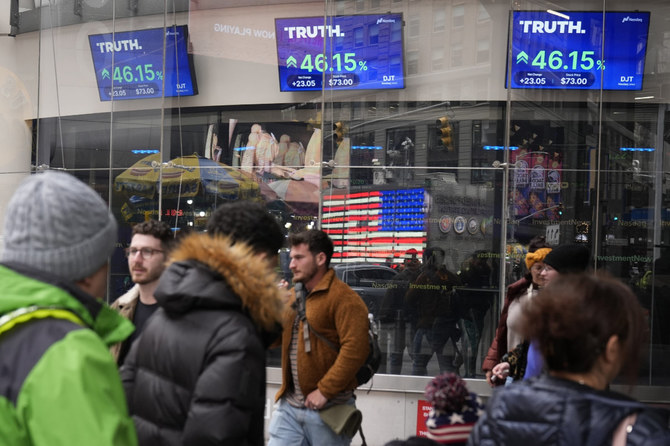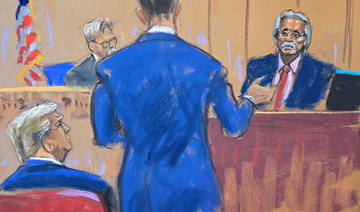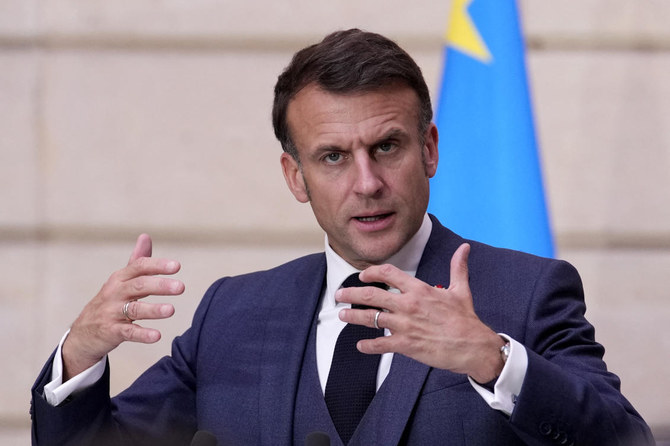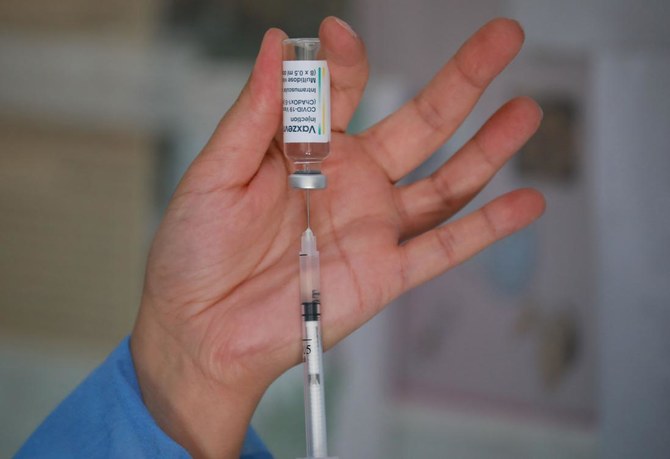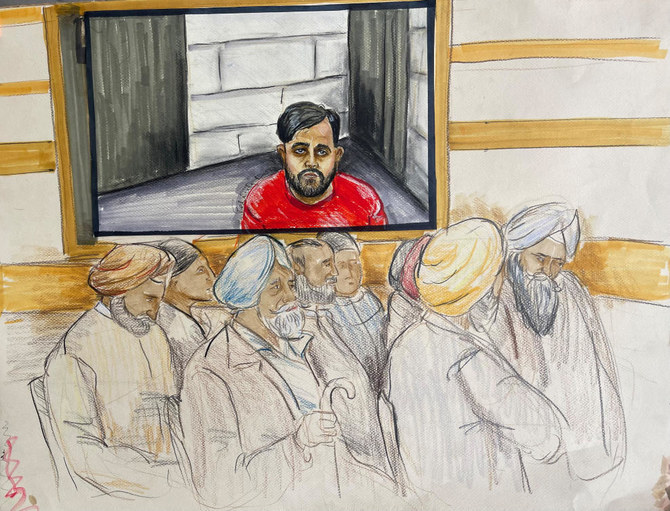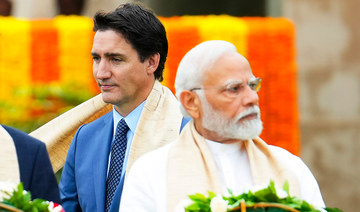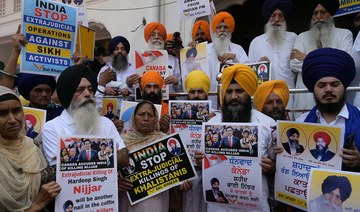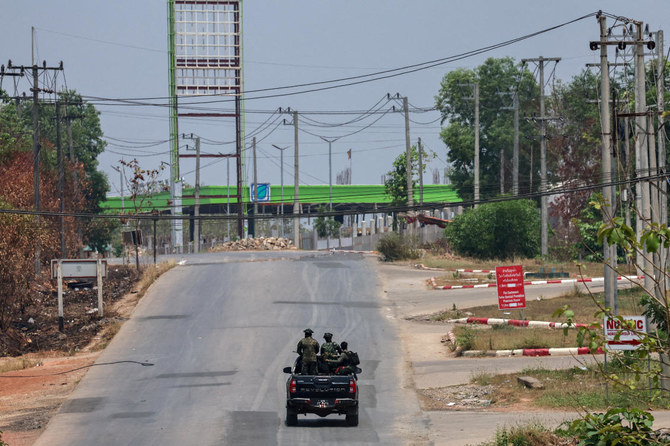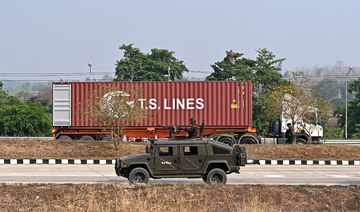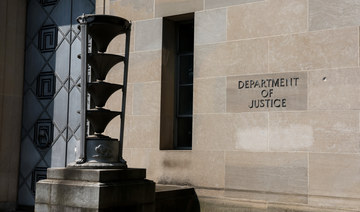NEW YORK: Rooting for Donald Trump to fail has rarely been this profitable.
Just ask a hardy band of mostly amateur Wall Street investors who have collectively made tens of millions of dollars over the past month by betting that the stock price of his social media business — Truth Social — will keep dropping despite massive buying by Trump loyalists and wild swings that often mirror the candidate’s latest polls, court trials and outbursts on Truth Social itself.
Several of these investors interviewed by The Associated Press say their bearish gambles using “put” options and other trading tools are driven less by their personal feelings about the former president (most don’t like him) than their faith in the woeful underlying financials of a company that made less money last year than the average Wendy’s hamburger franchise.
“This company makes no money. ... It makes no sense,” said Boise, Idaho, ad executive Elle Stange, who estimates she’s made $1,300 betting against Trump Media & Technology stock. “He’s not as great a businessman as he thinks. A lot of his businesses go belly up, quickly.”
Says Seattle IT security specialist Jeff Cheung, “This is guaranteed to go to zero.”
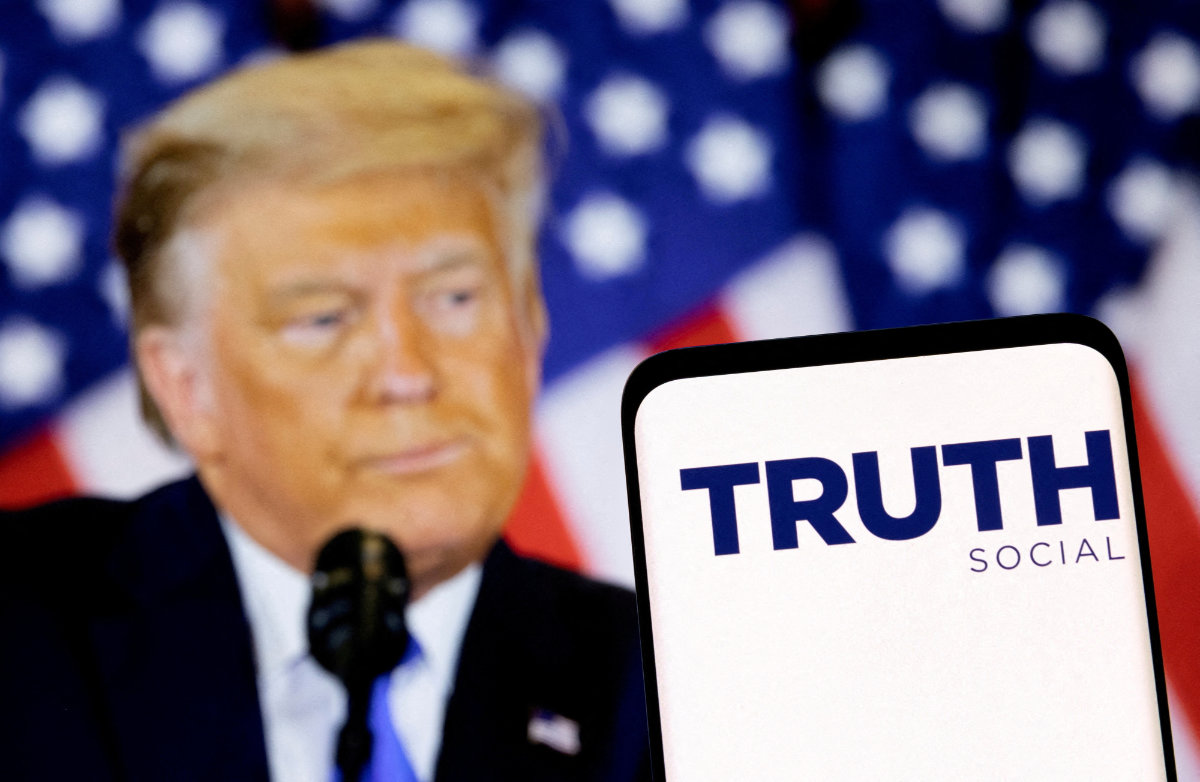
The Truth social network logo is seen on a smartphone in front of a display of former US President Donald Trump in this picture illustration taken February 21, 2022. (REUTERS)
As of Friday’s close, a month since Trump Media’s initial public offering sent its stock to $66.22, it has dropped to $41.54. An AP analysis of data from research firms FactSet and S3 Partners shows that investors using puts and “short selling” have paper profits so far of at least $200 million, not including the costs of puts, which vary from trade to trade.
Still, amateur traders, mostly risking no more than a few thousand dollars each, say the stock is too volatile to declare victory yet. So they are cashing in a bit now, letting other bets ride and stealing a glance at the latest stock movements in the office cubicle, at the kitchen table or even on the toilet.
There have been plenty of scary moments, including last week when DJT, the ex-president’s initials and stock ticker, jumped nearly 40 percent in two days.
“I don’t know which direction the stock is going,” says Schenectady, N.Y., day trader Richard Persaud while checking his iPhone amid the surge. “It’s so unbelievably overvalued.”
Many who spoke to the AP say knowing their bets have helped slash the value of Trump’s 65 percent stake in half is an added political benefit. If some of their predictions are right, they may able to someday push it to zero, making it impossible for him to tap it to pay his hefty legal bills or finance his GOP presidential campaign.
They have a long way to go. Trump’s stake is still worth $4 billion.
Normally, investors betting a stock will fall, especially a gutsy breed of hedge fund traders called “short sellers,” will do plenty of homework. They’ll pore over financial statements, develop expertise in an industry, talk to competitors, and even turn to “forensic accountants” to find hidden weaknesses in the books.
No need in Trump Media’s case. It’s all there in the Sarasota, Florida-based company’s 100-page financial report: A firehose of losses, $58 million last year, on minuscule revenue of $4 million from advertising and other sources.
The losses are so big, as Trump Media’s auditor wrote in the report, they “raise substantial doubt about its ability to continue as a going concern.”
A short seller’s dream? Or is it a nightmare?
Amateur trader Manny Marotta has two computer screens at home, one for work, the other showing DJT stock’s movements where he can gauge how much he’s up or down.
It wasn’t looking so good earlier this week.

The stock price chart for the Trump Media and Technology Group on the NASDAQ website is seen on a computer screen in New York on April 19, 2024. (AP Photo)
The legal writer from suburban Cleveland had been up about $4,000 on “put” options purchased over the past few weeks. But the screen that morning was showing investors, presumably rich ones, buying large volumes of DJT shares, pushing up the stock once again.
“My options are worth less with every passing minute,” says Marotta, adding about DJT: “It’s being manipulated. It’s insane.”
Waiting for the stock to drop is especially painful to “short sellers,” who pay a fee to borrow shares owned by others. The idea is to quickly sell them on a hunch they will be able to buy the same number of them later for much cheaper before having to return them to the lender. That allows short sellers to pocket the difference, minus the fee, which is usually nominal.
In DJT’s case, the fee is anything but nominal.
It was costing 565 percent a year at one point earlier this month, meaning short sellers had only two months before any possible profits would be eaten up in fees, even if the stock went to zero. It’s a rate so off the charts, that only three other stocks in recent memory have exceeded it, according to data from Boston University’s Karl Diether and Wharton’s Itamar Drechsler, who have studied short selling back two decades.
Add in massive buying by Trump supporters who see it as a way to support their candidate, and losses could multiply fast.
“It’s scary,” says Drechsler, who likens buyers of Trump’s stock to unwavering sports fans. “It is everything that you hope that the stock market is not.”
Trump Media spokeswoman Shannon Devine said the company is in a “strong financial position” with $200 million in cash and no debt, and said the AP was “selecting admitted Trump antagonists.”
Another danger to the stock is a “short squeeze.” If the price rises sharply, it could set off a rush by short sellers who fear they’ve bet wrongly to return their borrowed shares right away and limit their losses. And so they start buying shares to replace the ones they borrowed and sold, and that very buying tends to work against them, sending the price higher, which in turn scares other short sellers, who then also buy, setting off a vicious cycle of price hikes.
“If DJT starts rallying, you’re going to see the mother of all squeezes,” says S3 Partners short-selling expert Ihor Dusaniwsky, who spent three decades at Morgan Stanley helping investors borrow shares. “This is not for the faint of heart.”
And if that wasn’t enough, there is a final oddball feature of DJT stock that could trigger an explosion in prices, up or down.
“Lock up” agreements prohibit Trump and other DJT executives from selling their shares until September. That leaves the float, or the number of shares that can be traded each day by others, at a dangerously tiny 29 percent of total shares that will someday flood the market. That means a big purchase or sale on any day that would barely move a typical stock can send DJT flying or crashing.
The float is smaller than that of most other notoriously volatile stocks. At their smallest levels, AMC, GameStop and Shake Shack each had more than double the float.
Seattle trader Cheung sees DJT’s freak characteristics as a reason to bet against the stock, not shy away. When the lock-up period ends, he predicts, the ex-president will indeed sell his shares, spooking the market and sending the price down sharply. And even if he doesn’t, other insiders whose lock-ups expire will fear he will do so and will move fast to get a good price before it falls.
“The first one to sell out is going make to most, ” Cheung says. “Everyone is going to sell.”
Still, he doesn’t want to lose money in the interim, so Cheung is offsetting some of his “put” bets with the purchase of “calls.” The latter are also derivatives, but they do the opposite, paying off when the stock rises. Cheung hopes that whichever makes money, the puts or the calls, he will make enough with one to more than make up for the loss of the other.
If all of this seems too complicated, there is a far simpler way to make money betting against Trump.
Offshore, casino-style betting sites are taking wagers on the 2024 election, and some have even made President Joe Biden the favorite.



